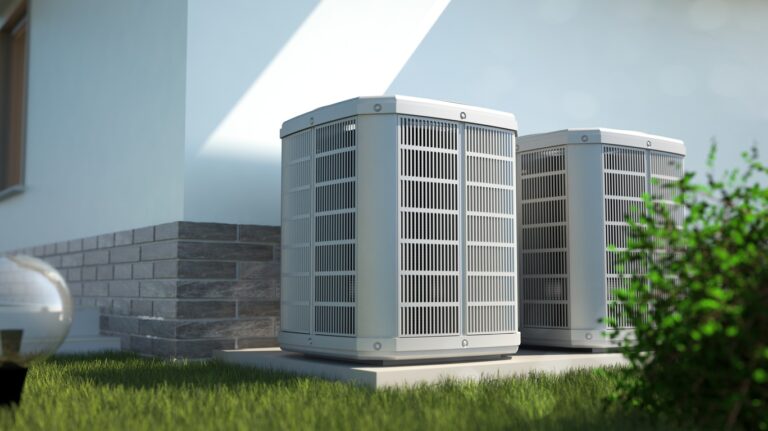You know heat pumps because of their exceptional efficiency compared to traditional multi-unit HVAC systems. However, simply having a heat pump doesn’t necessarily mean you’ll experience better efficiency. Rather, consider these five factors you may not realize affect the efficiency of your Wilmer, AL heat pump.
1. Proper Size
One of the most important aspects of achieving high efficiency with a heat pump is getting the right size. The size of a heat pump refers to the heat transfer capacity the unit has. This is both in transferring heat into your home to heat it and out of your home to cool it.
When your system is too large or too small, then you lose the expected efficiency improvements. With an undersized system, your heat pump will run long cycles trying to achieve the right temperature. Conversely, an oversized system short cycles, leading to additional starts, which is the most energy-intensive part of the cycle.
In addition to reduced efficiency, an improperly sized unit also puts excessive wear on your system. This leads to additional heat pump repairs and a shorter service life.
2. Unit’s Age
Heat pumps have an anticipated service life of roughly 10 to 15 years. As the unit approaches the end of its anticipated service life, you’ll notice that your energy consumption may start climbing.
The components wear out over time, sometimes causing additional electrical resistance. In other words, it requires more power to push through and achieve the same result.
You can’t prevent a system from aging normally, but you don’t have to wait for a surprise failure either. Rather, once your unit reaches the 10-year mark, start planning to replace the system. This will ultimately keep your system operating at peak efficiency, avoid unneeded repairs and keep your home comfortable.
3. System Technology
Another huge aspect of your system’s efficiency is the technology contained within the system. The particular components that have the greatest effect on efficiency are the compressor and the circulating fan motor.
In less efficient models, the system uses what’s called a single-stage compressor and a single-speed circulating fan motor. Together, they run either on or off; there aren’t different speeds at which they operate.
More efficient systems use multi-stage compressors and variable-speed fan motors, allowing the compressor and fan to run at a lower capacity when it’s maintaining your home’s temperature. With this technology, the system runs longer cycles but still improves efficiency because it’s consuming less energy.
4. Outside Temperature
The outside temperature plays a major role in an air source heat pump’s efficiency. Geothermal units bury the coil deep enough to insulate it against surface temperature variations.
The way air source units work is by making the outside coil hotter or colder than the surrounding air. The heat pump can then transfer heat out of the refrigerant in the summer and absorb heat in the winter.
The largest impact on efficiency around the Mobile, AL area is over the intensive summer. This is especially true if your unit sits out in the sunshine all day. Give your unit an efficiency boost by installing some shade, ensuring you’re still giving it the appropriate airflow clearance.
5. System Maintenance
The final factor affecting your heat pump’s efficiency is how well you maintain your system. You’ll need to change your air filter regularly, keep brush away from your outside heat pump unit and schedule professional maintenance.
All of these work to ensure your system can circulate air effectively, including circulating air inside and the air needed for heat transfer outside. Your technician will ensure the system isn’t leaking refrigerant, another key affecting your unit’s efficiency.
Prepare your heat pump to give you the best efficiency throughout the year. Call to schedule your heat pump maintenance appointment with one of the expert technicians at Air Specialty today.
Image provided by iStock

